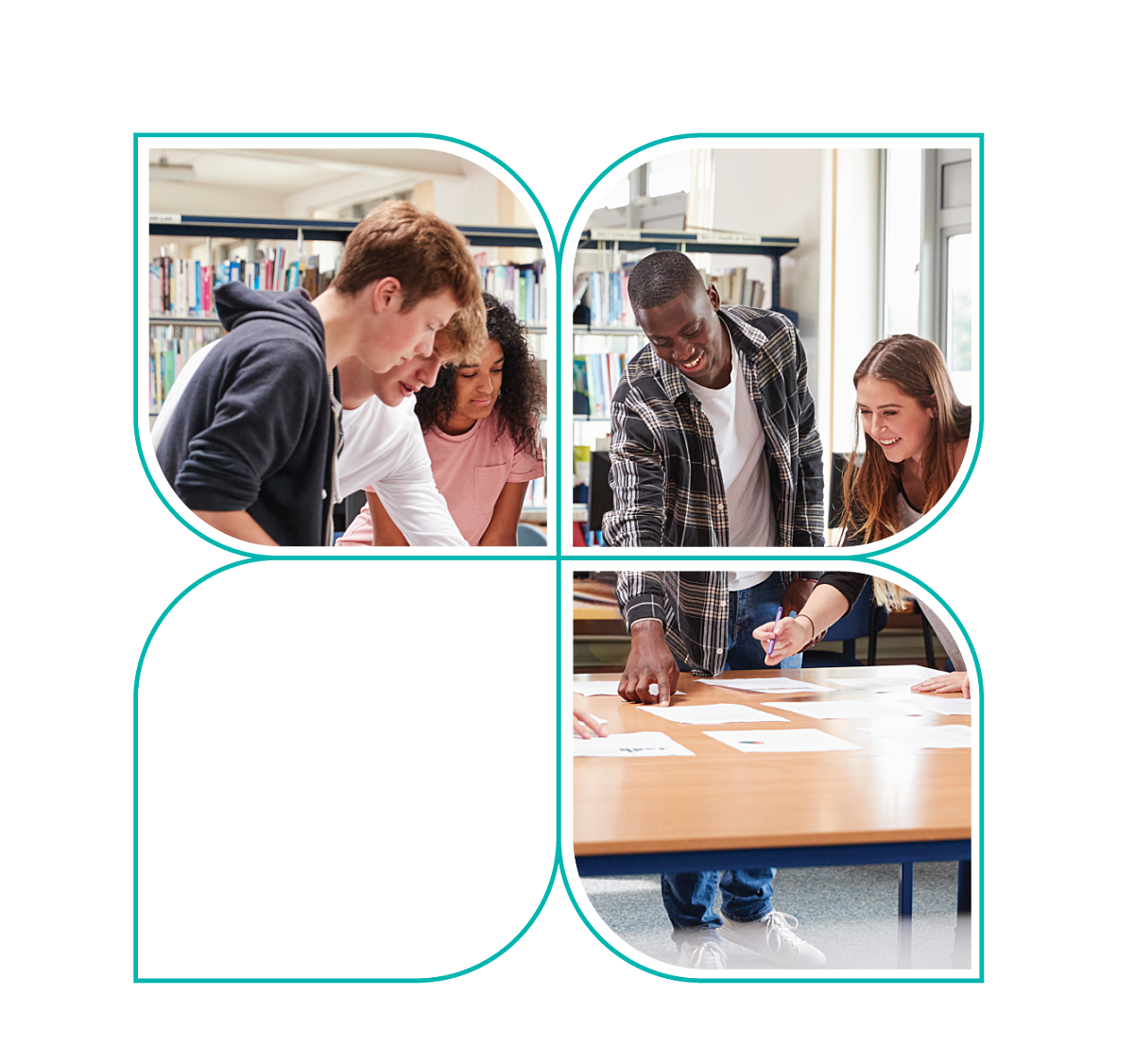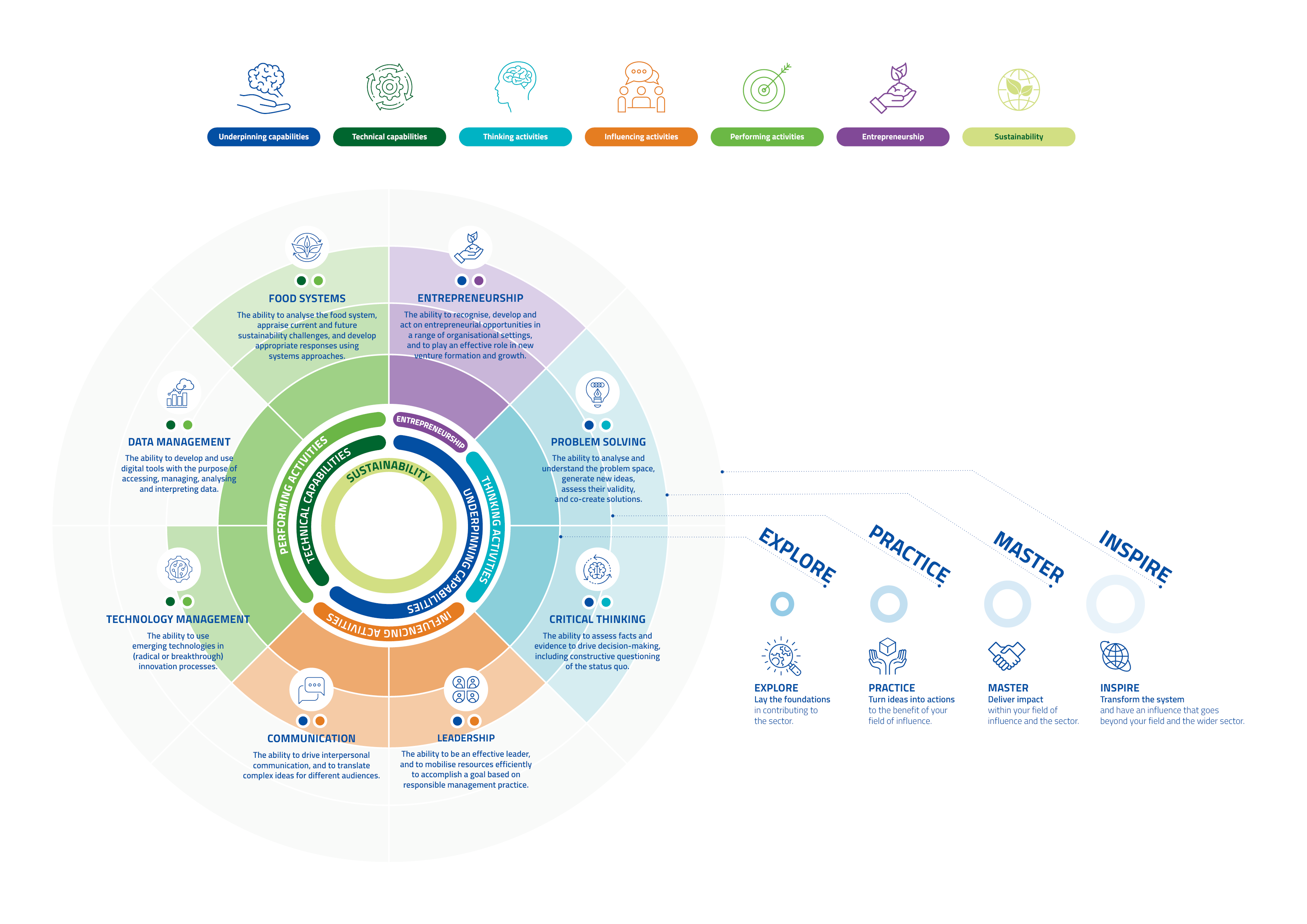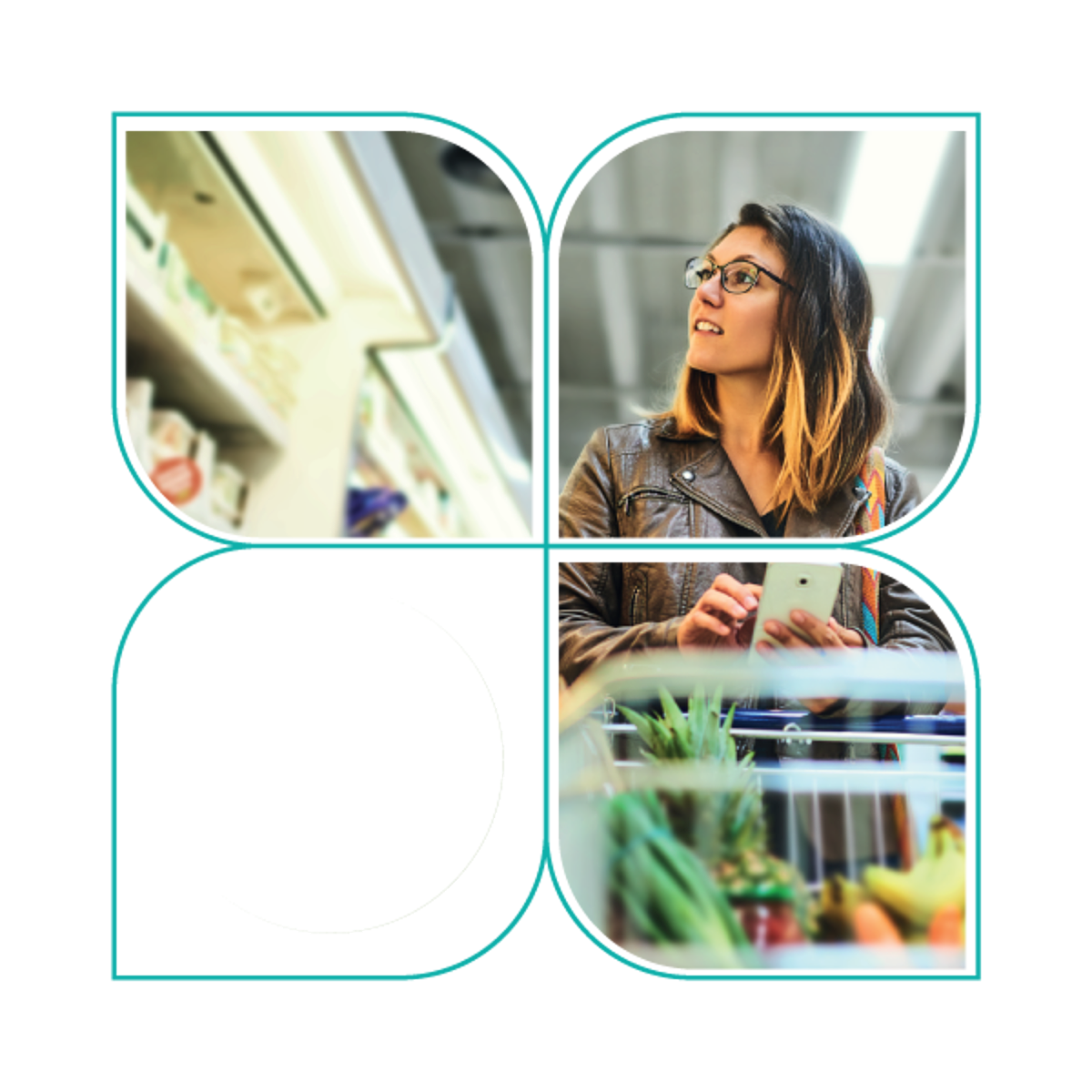RIS Inspire - Sustainable Food Production and Consumption
New Deep Tech approaches, Methods and Tools


Course information
- Level
-
Intermediate
- Applications
-
Open
- Dates
-
From the 16th of September until the 4th of October of 2024
- Price
-
50€ for the full course, excluding VAT
About : Gain knowledge and awareness of the challenges related to the sustainability of food systems
The main learning objective of the programme is to provide participants with an insight into the most important challenges for increasing the sustainability of the food system and access to healthier diets with an approach to digital innovation. The taught contents will be applied in a project-based learning approach focused on different food system topics: Sustainability Agriculture, Alternative Proteins and Circular Food Systems.
By the end of the programme, students will have gained greater knowledge and awareness of the challenges related to the sustainability of food systems and will be able to develop concrete strategies and solutions to address them with an entrepreneurial spirit and the most effective deep technologies.
The course is open to bachelor’s, master’s and doctoral students interested in food and nutrition.
This course is open only for RIS Countries. Find more about the EIT RIS Countries here.
Advantages :
The Summer School programme is structured with a student-centered vision and a project-based approach that will encourage you to use the tools provided by highly qualified experts to co-develop your own innovative and entrepreneurial idea for healthier living through food.
Teaching contents will be supported by academics from the University of Bologna, University of Turin, Aarhus University, and highly qualified professionals on entrepreneurship in the food system. In addition, agribusiness experts related to sustainable food production and consumption will be invited to discuss and give important inputs to students.
Career Opportunities : This programme is for you!
This Summer School will provide participants with knowledge and awareness of the challenges of sustainability and healthy nutrition. In addition, the network that will be created through the teamwork approach will strengthen a smart ecosystem for young innovators with highly multidisciplinary backgrounds.
The programme will facilitate an open innovation ecosystem, allowing participants to operate in a broader spatial context and become skilled individuals in developing, managing and sharing innovative solutions focused on sustainable food systems.
Through this learning opportunity, entrepreneurship and innovation will be catalysed with a focus on the potential of start-ups and entrepreneurial talent, supporting young people to become active players in regional and national developments, especially in relation to the transition to sustainable food systems in RIS areas.
What you'll learn : Taught by academics and food industry experts

Entrepeneurship
- Create opportunities for systemic social and environmental value creation.
- Devise strategies to mobilise and leverage resources to create sustainable value.
- Design effective actions to scale societal impact.
Problem solving
- Critically appraise the problem space to analyse the strategic implications of future choices.
- Mobilise effective co-creation methodologies to generate original and sustainable solutions that include relevant voices.
Critical thinking
- Critically analyse, interpret and report data and information to inform ethical decision making.
- Challenge existing practices and knowledge to develop sustainable alternatives.
Leadership
- Appraise different strategies to deliver a food system innovation.
- Demonstrate leadership towards the implementation of a food system innovation.
Communication
- Appraise different strategies to deliver a food system innovation.
- Demonstrate leadership towards the implementation of a food system innovation.
Technology management
- Mobilise appropriate technologies in innovation processes
- Design effective actions to mitigate key unintended consequences of the use of emerging technologies.
- Contribute to the development of new technologies for food system transformation.
- Manage IPRs.
Data management
- Implement effective data management protocols.
- Recognise the importance of data security measures.
- Identify key unintended consequences of the use of information technologies.
Food systems
- Develop strategies to address current and future challenges using systems approaches.
- Design innovative responses to address sustainability challenges in the food system.
Structure & Modules : Three-week course
The three-week course will give you insight into sustainable food production and consumption with a focus on Deep Tech innovations. The course will be taught by academics and food industry experts in a blended synchronous and asynchronous (online and offline) approach, and it will enable you and your team to develop and co-design a creative and innovative idea to promote healthier and more sustainable lives through food.
In the first week (September 16, 2024 – September 20, 2024), you will be given an overview of the 3 main topics that will be covered by the programme: Sustainable Agriculture, Alternative Proteins and Circular Food Systems.
In the second week (September 23, 2024 – September 27, 2024), you will be presented with case studies where extensive research was conducted on the topics covered. The case studies will improve your understanding of the challenges to be faced and the opportunities to be seized. They also will be a useful tool for effectively planning your entrepreneurial projects.
In the third week (September 30, 2024 – October 04, 2024), you will have the opportunity to be inspired by a series of talks that will focus on innovation, creativity, business and the future. These “Inspirational talks” will be conducted by entrepreneurs and experts in the food sector.
You will work in interdisciplinary teams with the support of mentors during the 3 weeks.
The school ends with a final test. Successful participants will be granted a Certificate of Completion.
However, right after the school ends participants will have the opportunity to join the Inspire Impact competition, continue their learning, earn an additional certificate and compete for cash prizes (up to €4000).
The Inspire Impact course is free of charge for candidates who have satisfactorily completed any Inspire School.
More information about this competition will be shared soon!
Programme Lead :

Silvia Dilloo
Research Fellow - Department of Agricultural and Food Sciences Università di Bologna
silvia.dilloo2@unibo.it
Giovanni Dinelli
Full Professor at the Department of Agricultural and Food Sciences (DISTAL) of University of Bologna, Italy
giovanni.dinelli@unibo.it
Matteo Vittuari
Full Professor at the Department of Agricultural and Food Sciences (DISTAL) of University of Bologna, Italy
matteo.vittuari@unibo.it
Paola De Bernardi
Professor of Circular Economy Management at the Department of Management - School of Management and Economics (SME) - University of Turin, Italy
paola.debernardi@unito.it
Ilknur Sahin
Project Manager of Foodback, Istanbul, Türkiye
ilknur@foodback.coRelated courses
View our full course catalogue

Pathways to Impact for PhDs


InfraBooster Foundation


Food Solutions